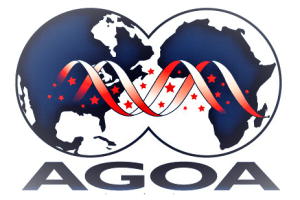 As stakeholders gathered last week for the African Growth and Opportunity Act (AGOA) Forum, President Joe Biden called on Congress to quickly reauthorize and modernize this landmark act — which is set to expire in 2025.
As stakeholders gathered last week for the African Growth and Opportunity Act (AGOA) Forum, President Joe Biden called on Congress to quickly reauthorize and modernize this landmark act — which is set to expire in 2025.
Enacted in May 2000, the AGOA is the cornerstone of U.S. economic and commercial engagement with the countries of sub-Saharan Africa.
The U.S. Trade Representative (USTR) hosted the AGOA forum, July 24–26 in Washington, D.C.
According to the USTR, AGOA provides eligible sub-Saharan African countries with duty-free access to the U.S. market for more than 1,800 products, in addition to the more than 5,000 products that are eligible for duty-free access under the Generalized System of Preferences program. Thirty-two countries are eligible for AGOA benefits in 2024.
To meet AGOA’s rigorous eligibility requirements, countries must establish or make continual progress toward establishing a market-based economy, the rule of law, political pluralism, and the right to due process. Additionally, countries must eliminate barriers to U.S. trade and investment, and enact policies to reduce poverty, combat corruption and protect human rights.
By providing new market opportunities, AGOA has helped bolster economic growth, promoted economic and political reform, and improved U.S. economic relations in the region.
Congress first passed the program in 2000, when Bill Clinton was president, and has renewed it several times with bipartisan support.
The latest 10-year extension expires on September 30, 2025, and Congress has been slow to renew the program.
AGOA Forum
The theme of the 2024 AGOA Forum was “Beyond 2025: Reimagining AGOA for an Inclusive, Sustainable and Prosperous Tomorrow.”
The Forum brought together senior government officials from the United States and AGOA-eligible countries, as well as representatives from regional economic organizations, labor, civil society and the private sector.
Senate Bill S.4110 — the AGOA Renewal and Improvement Act of 2024 — has been introduced in Congress and referred to the U.S. Senate committee on finance for initial consideration.
The new act extends the AGOA preference sunset date for 16 years. Instead of expiring in September 2025, the AGOA will expire in September 2041. This long-term extension is expected to provide greater stability and predictability for trade relations between the United States and AGOA-eligible countries.
Annual AGOA Report
According to the 2024 AGOA Biennial Report, released on June 27, since the act was signed into law in May 2000, it has played a critical role in the United States’ trade relationship with sub-Saharan Africa.
AGOA has fostered economic growth and development on the continent and has created tens of thousands of jobs for its people. AGOA has also continued to encourage U.S. companies to both do business with and invest in sub-Saharan Africa and has encouraged African governments to develop and implement African-led solutions to economic and political reforms.
In 2023, U.S. imports under AGOA (including the Generalized System of Preferences) totaled $9.7 billion. This consisted of approximately $4.2 billion in crude oil and $5.5 billion in other products, including $1.1 billion in apparel and more than $900 million in agricultural products. The biennial report is required by the U.S. Congress.
History of AGOA
The California Chamber of Commerce supported the AGOA, which President Bill Clinton signed on May 19, 2000, as part of The Trade and Development Act of 2000.
President George W. Bush signed legislation on July 13, 2004, extending the AGOA from 2008 to 2015. In 2015, Congress passed and President Barack Obama signed legislation modernizing and extending the program to 2025.
The act embodies a trade and investment-centered approach to development. Enactment of the AGOA has stimulated the growth of the African private sector and provided incentives for further reform. The AGOA is aimed at transforming the relationship between the United States and sub-Saharan Africa away from aid dependence to enhanced commerce by providing commercial incentives to encourage bilateral trade.
CalChamber Position
The CalChamber believes that it is in the mutual economic interest of the United States and sub-Saharan Africa to promote stable and sustainable economic growth and development in sub-Saharan Africa and that this growth depends in large measure upon developing a receptive environment for trade and investment.
The CalChamber is supportive of the United States seeking to facilitate market-led economic growth in, and thereby the social and economic development of, the countries of sub-Saharan Africa. In particular, the CalChamber is supportive of the United States seeking to assist sub-Saharan African countries, and the private sector in those countries, to achieve economic self-reliance.
Staff Contact: Susanne T. Stirling

